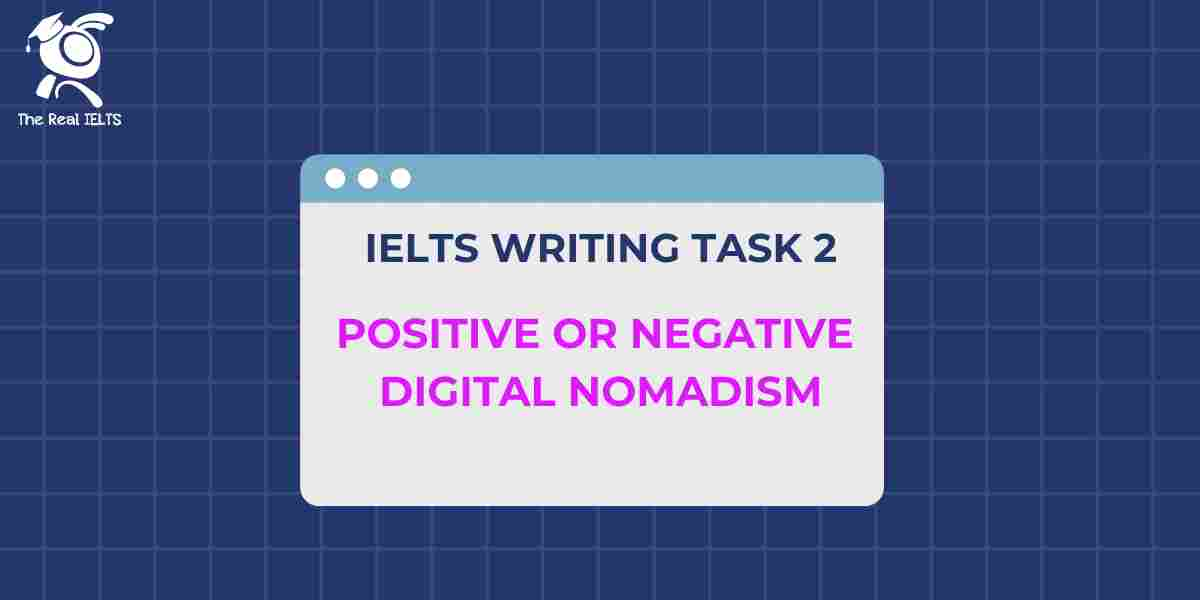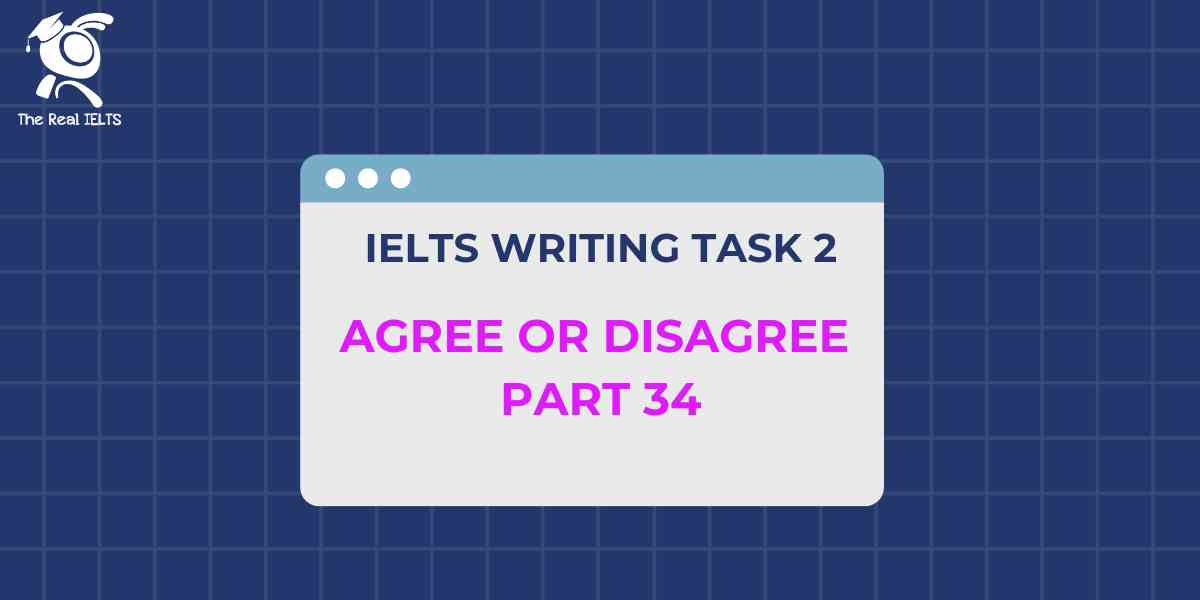Đề bài IELTS Writing Task 2 dạng Positive or Negative digital nomadism
You should spend about 40 minutes on this task
The growing trend of digital nomadism. Do you think this is a positive or negative development?
Write at least 250 words.
Giải mẫu IELTS Writing
The rise of digital nomadism, where individuals work remotely while traveling or living in various locations, has become increasingly popular in recent years. This trend has sparked a debate about whether it is a positive or negative development. While I acknowledge that digital nomadism has several benefits, I believe that it also presents significant challenges, making it a development with both positive and negative aspects.
On the positive side, digital nomadism offers unprecedented flexibility and freedom to individuals. People can choose to work from anywhere in the world, allowing them to experience different cultures, explore new environments, and lead a more balanced lifestyle. This freedom can lead to increased job satisfaction and productivity, as individuals are not bound by the constraints of a traditional office environment. Furthermore, digital nomadism can boost creativity and innovation, as exposure to diverse cultures and ideas can inspire new perspectives and approaches to work.
In addition, digital nomadism can have positive economic impacts on local communities. Digital nomads often spend money on accommodation, food, and other services in the places they visit, supporting local businesses and contributing to the local economy. This influx of spending can be particularly beneficial in areas that rely heavily on tourism, helping to sustain livelihoods and promote economic development.
However, there are also drawbacks to this trend. One of the main challenges is the lack of stability and security that digital nomadism can bring. Constantly moving from one place to another can lead to feelings of isolation and loneliness, as digital nomads may struggle to form meaningful relationships and build a sense of community. Additionally, the lack of a stable work environment can make it difficult to maintain a consistent routine, potentially leading to decreased productivity and burnout over time.
Moreover, digital nomadism can exacerbate issues of inequality and privilege. The ability to work remotely while traveling is often limited to those who have the financial means and access to technology, leaving others behind. This trend may also contribute to the gentrification of certain areas, as digital nomads may drive up the cost of living, making it more difficult for local residents to afford housing and other necessities.
In conclusion, while the growing trend of digital nomadism offers many benefits, it also presents significant challenges that cannot be overlooked. The flexibility and economic opportunities it provides are counterbalanced by the potential for instability, isolation, and inequality. Therefore, I believe that digital nomadism is a development with both positive and negative aspects, and individuals should carefully consider these factors before embracing this lifestyle.
Thống kê cấu trúc câu và cấu trúc ngữ pháp
- Câu phức (Complex sentences):
- “While I acknowledge that digital nomadism has several benefits, I believe that it also presents significant challenges, making it a development with both positive and negative aspects.”
- “People can choose to work from anywhere in the world, allowing them to experience different cultures, explore new environments, and lead a more balanced lifestyle.”
- “Constantly moving from one place to another can lead to feelings of isolation and loneliness, as digital nomads may struggle to form meaningful relationships and build a sense of community.”
- “The ability to work remotely while traveling is often limited to those who have the financial means and access to technology, leaving others behind.”
- Câu ghép (Compound sentences):
- “This trend has sparked a debate about whether it is a positive or negative development.”
- “This freedom can lead to increased job satisfaction and productivity, as individuals are not bound by the constraints of a traditional office environment.”
- “This trend may also contribute to the gentrification of certain areas, as digital nomads may drive up the cost of living, making it more difficult for local residents to afford housing and other necessities.”
- Câu đơn (Simple sentences):
- “The rise of digital nomadism, where individuals work remotely while traveling or living in various locations, has become increasingly popular in recent years.”
- “This influx of spending can be particularly beneficial in areas that rely heavily on tourism, helping to sustain livelihoods and promote economic development.”
- “Moreover, digital nomadism can exacerbate issues of inequality and privilege.”
- Mệnh đề quan hệ (Relative clauses):
- “The rise of digital nomadism, where individuals work remotely while traveling or living in various locations, has become increasingly popular in recent years.”
- “Constantly moving from one place to another can lead to feelings of isolation and loneliness, as digital nomads may struggle to form meaningful relationships and build a sense of community.”
- Câu điều kiện (Conditional sentences):
- “If individuals are not bound by the constraints of a traditional office environment, they can increase job satisfaction and productivity.”
Từ nối câu và đoạn trong bài viết
- Từ nối câu:
- While: Dùng để chỉ sự đối lập.
- As: Dùng để chỉ lý do.
- Because: Dùng để chỉ nguyên nhân.
- Furthermore: Dùng để thêm thông tin.
- Moreover: Dùng để thêm thông tin hoặc đưa ra quan điểm bổ sung.
- However: Dùng để chỉ sự đối lập hoặc đưa ra quan điểm trái ngược.
- In addition: Dùng để thêm thông tin.
- Therefore: Dùng để kết luận, chỉ kết quả của những luận điểm trước đó.
- Từ nối đoạn:
- On the positive side: Dùng để giới thiệu luận điểm tích cực.
- In addition: Dùng để bổ sung thông tin vào luận điểm tích cực.
- However: Dùng để chuyển sang luận điểm tiêu cực.
- Moreover: Dùng để bổ sung thông tin vào luận điểm tiêu cực.
- In conclusion: Dùng để kết luận toàn bộ bài viết.
Các từ vựng tiếng Anh cần lưu ý trong bài viết
- Digital nomadism – Chủ nghĩa du mục kỹ thuật số
- Trend – Xu hướng
- Remotely – Từ xa
- Flexibility – Sự linh hoạt
- Freedom – Sự tự do
- Culture – Văn hóa
- Environment – Môi trường
- Job satisfaction – Sự hài lòng trong công việc
- Productivity – Năng suất
- Creativity – Sự sáng tạo
- Innovation – Sự đổi mới
- Economic impacts – Tác động kinh tế
- Local communities – Cộng đồng địa phương
- Support – Hỗ trợ
- Livelihoods – Sinh kế
- Economic development – Phát triển kinh tế
- Drawbacks – Những hạn chế, nhược điểm
- Stability – Sự ổn định
- Security – Sự an toàn
- Isolation – Sự cô lập
- Loneliness – Sự cô đơn
- Meaningful relationships – Những mối quan hệ có ý nghĩa
- Community – Cộng đồng
- Routine – Thói quen
- Burnout – Sự kiệt sức
- Inequality – Sự bất bình đẳng
- Privilege – Đặc quyền
- Technology – Công nghệ
- Gentrification – Sự thay đổi cấu trúc xã hội (thường dẫn đến việc tăng giá sinh hoạt)
- Cost of living – Chi phí sinh hoạt
- Stable – Ổn định
Đọc thêm các bài Luyện Thi IELTS khác trong link nhé.















